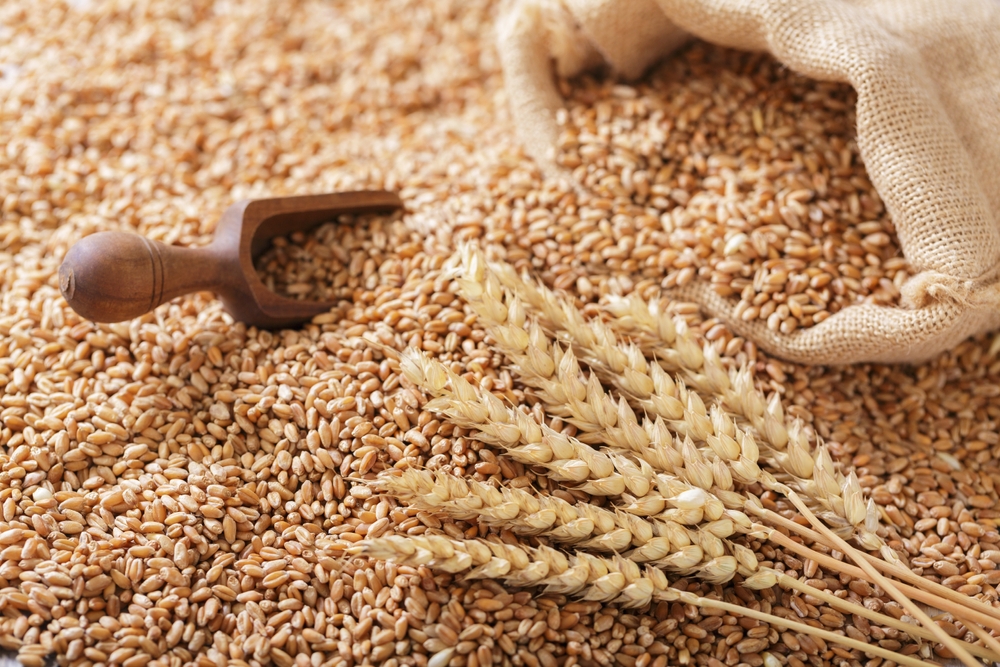Balsamic vinegar is a delicious condiment that can be used in many types of cuisine in many ways. Whether it’s in dips and sauces or added to a marinade, it’s a tasty addition that adds a sweet “zing” to the food. If you feed your dog table scraps, you may have wondered if this ingredient is safe for your dog to consume.
You may also have seen people giving apple cider vinegar to their dogs for a variety of perceived health benefits, which may have left you wondering if balsamic vinegar would be a good alternative if it’s what you already have on hand. Unfortunately, balsamic vinegar could be toxic to dogs. Here’s what you should know before giving balsamic vinegar to your dog.
Can Dogs Eat Balsamic Vinegar?
While some types of vinegar may be safe for dog consumption or use on the skin and coat, balsamic vinegar should be considered toxic to dogs. Believe it or not, balsamic vinegar is made from white grapes. Grapes are a known toxin for dogs that can lead to kidney failure and death, so it’s extremely important to avoid giving any grape-based foods to your dog.
While the risk of toxicity with the consumption of a small amount of balsamic vinegar is likely low, it’s unknown what the threshold for safe grape consumption is for dogs because it varies widely between individual dogs. For this reason, you should avoid letting your dog have balsamic vinegar.
Not only is balsamic vinegar likely to be toxic for your dog, but it’s also highly acidic with 6% acetic acid. Although there is no harm observed in dogs fed a diet containing acetic acid at a level of 5% of metabolizable energy, it is best to avoid it.1 Dogs aren’t built to consume the same types of foods that humans are capable of consuming. If you’re one of the people who experience acid reflux and stomach upset after consuming acidic foods, then you likely know how a food like balsamic vinegar can make your dog feel. Reflux, stomach pain, cramps, nausea, vomiting, and diarrhea are all possible when your dog consumes highly acidic foods.

What Should I Do if My Dog Eats Balsamic Vinegar?
If your dog consumes a very small amount of balsamic vinegar, like a bite of meat that has been marinated in a balsamic vinegar marinade or a few drops of balsamic vinegar directly, then there is likely very little cause for concern. Keep a close eye on your dog for any negative side effects, like stomach discomfort. If you notice any change in their water consumption or urination, have them checked over by your vet. Of course, if you have any concerns about the amount of balsamic vinegar your dog consumed, it’s best to talk to their vet.
If your dog consumes a large amount of balsamic vinegar, like if they lap up a spill or eat a container of salad dressing, then you should reach out to your vet. Your dog will need to be seen to receive gastrointestinal decontamination, lab work, and IV fluids to help flush their kidneys.
If you need to speak with a vet but can’t get to one, head over to PangoVet. It’s an online service where you can talk to a vet online and get the personalized advice you need for your pet — all at an affordable price!
Conclusion
While you may hear about dogs being given vinegar for certain reasons, you should always avoid giving your dog balsamic vinegar. This food should be considered toxic to dogs due to its being derived from grapes. Significant consumption of balsamic vinegar should be reported to your vet, and if you’re unsure about the amount that your dog has consumed, then a call to your vet is the best way to ensure that your dog will be safe and healthy.
See Also:
- 9 Adorable Maltipoo Haircuts (With Pictures)
- Can Dogs Eat Vinegar? Vet-Reviewed Nutrition Facts & Info











